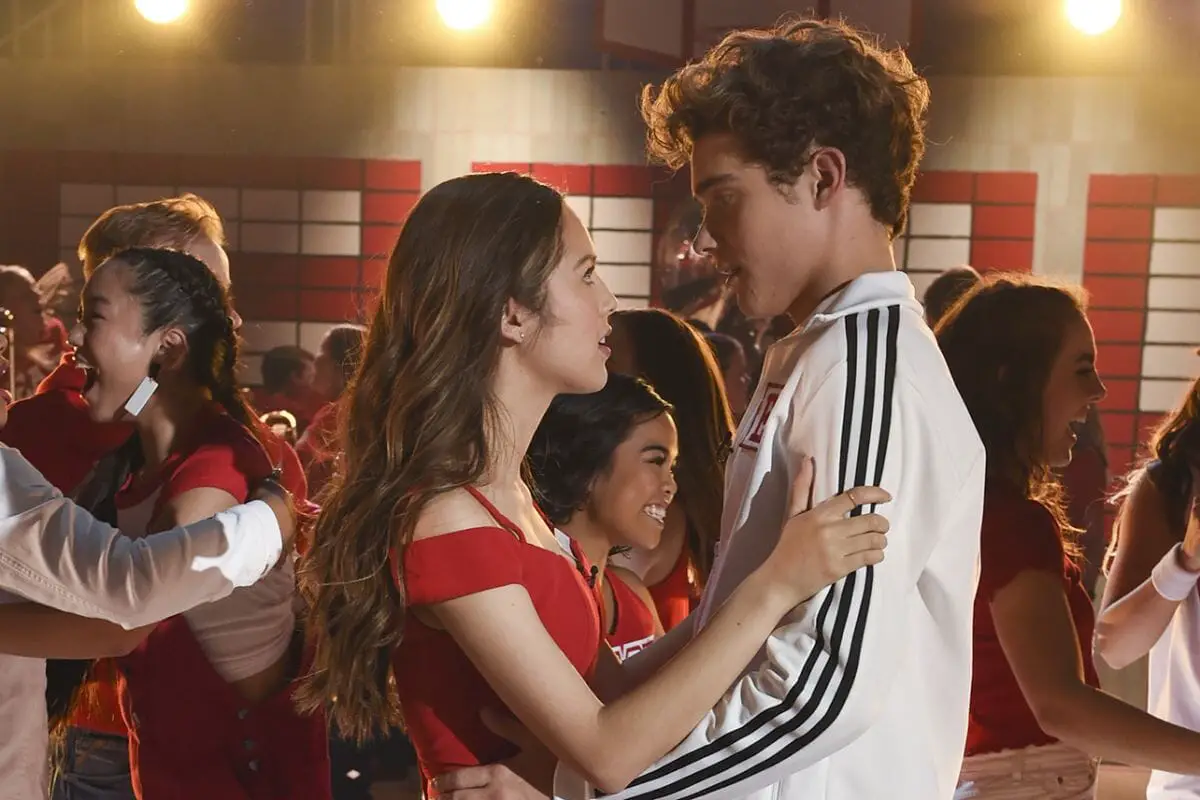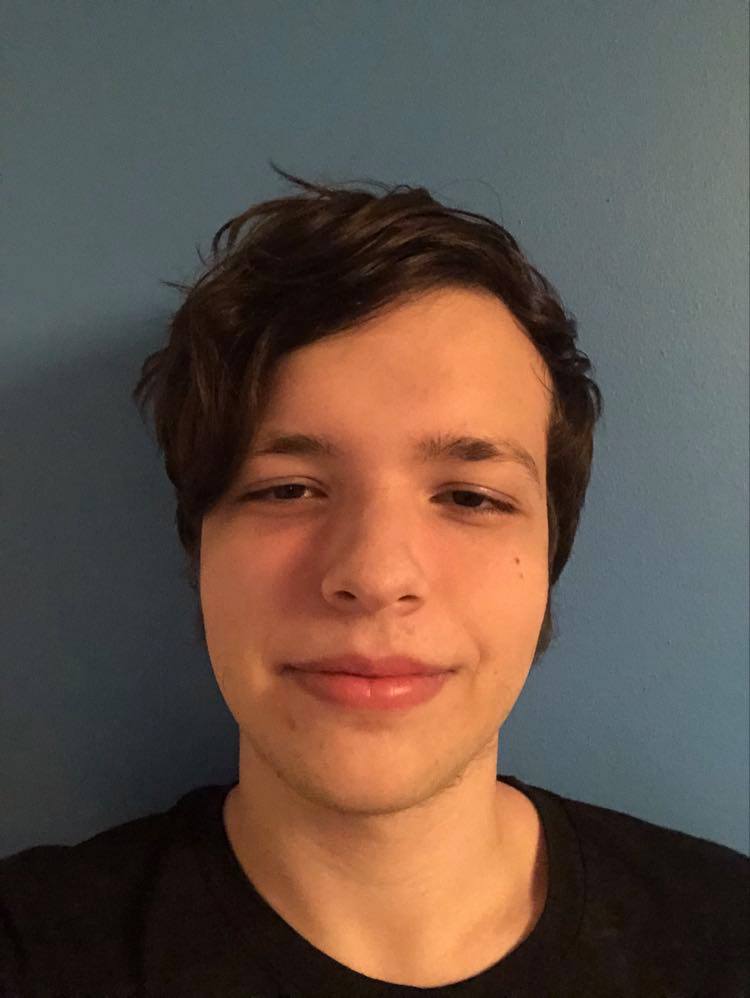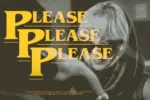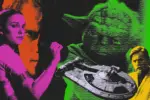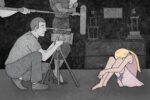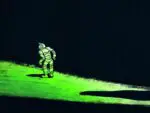Art rarely exists in a vacuum. It and the real world are symbiotic, constantly influencing each other. What happens in one realm can resonate in the other. For example, an off-screen tragedy can cast a dark shadow over a production. When Chadwick Boseman passed away last year, his final performance in “Ma Rainey’s Black Bottom” received critical acclaim and a posthumous Oscar nomination. While the performance was excellent on its own, it carried a certain gravitas. His desperate monologues were even more potent. His breakdowns were even more disheartening. The film’s narrative of desperation and dying artistry rings even truer.
The stories within art and reality can be juxtaposed, enhancing both. The behind-the-scenes narrative of Disney+’s “High School Musical: The Musical: The Series” is just the latest example. Based on the films of the same name, the story centers around the romance of its two leads, Nini and Ricky, played by Olivia Rodrigo and Joshua Bassett. Actors and characters are difficult to differentiate, as the duo dated both on the show and in real life. The ever-plentiful drama present off-screen carries over on-screen, altering viewers’ perception of the TV relationship.
The saga between Rodrigo and Bassett is one for the ages. Last January, during the production of the second season of “High School Musical,” Rodrigo dropped her hit single “Driver’s License.” Described as a “cultural reset,” the song is a lament for a dead relationship, but whose relationship? Rodrigo and Bassett broke up not too long before the song’s release. The piece discusses a boyfriend who left the narrator for “that blonde girl”; that blonde girl is Sabrina Carpenter, who Joshua dated after Olivia.
Suddenly, pop culture was lent a spotlight on a Gen Z relationship. The saga is too long to explain here, but the key takeaway is that Bassett and Rodrigo are on not-so-good terms. As a result, the new season of “High School Musical” held an extra layer of anticipation. How would the real-life teen soap play out on the fake one? Any scene of Nini and Ricky together would be strange at best and cringe at worst.
This whole crisis was a contrast from Season 1’s warm reception. It premiered to low expectations, with many questioning its ability to live up to the foundational film series. However, audiences became invested in its charm. The acting from the teen performers is surprisingly strong, accompanied by edgy humor (by Disney standards), diverse representation and strong character dynamics.
Nini and Ricky’s relationship forms the emotional and thematic core of the season. They write sappy songs for one another, playing parts in a complex web of relationships (and this was before “Sour” dropped). The relationship worked because of their chemistry. How actors approach their characters is vital. In this case, the approach was natural. The minutiae in Bassett and Rodrigo’s genuine love could play out across mediums. The intimacy. The bickering. The habit of sharing feelings through song. Off-screen strengthened the on-screen, but this would soon prove the opposite.
As of the beginning of its release this May, the second season of “High School Musical” has, so far, proved to be a massive downgrade from the first. The plot hits a wall. Characters engage with one another but with little consequence. Little bumps occur in the storyline but rarely progress it on a meaningful level. The acting is noticeably worse, and the same goes for the cast dynamics. Most importantly, what was once the highlight of the show has become its most glaring flaw. Nini and Ricky are just the worst. Any chemistry they once had feels sucked out by a vacuum. Any interaction they share comes with an extra layer of cringe. Even the songs are worse.
The once-wholesome relationship the two had now feels toxic and one-sided. For example, there is a scene in one of the recent episodes where Nini recounts a mild argument with Ricky about pineapple as a topping on pizza. This conflict seems minor, but upon a second viewing, Ricky/Joshua seems oddly controlling. He has been particularly egregious for much of the season, consistently showing a horrible attitude that the show does not address. Nini/Olivia deserves better. So what changed? Did the writers quit? The pandemic hit? Was it an off-screen drama that had harmful material and psychological impacts on the on-screen development?
The knowledge of the conflict between Bassett and Rodrigo impacts viewers’ perception of their fictional relationship on “High School Musical.” When Rodrigo first dropped “Driver’s License,” the narrative became set against Bassett. Whether that narrative is accurate or not is not my place to say, but most consider him the villain who broke a girl’s heart. With the characters and actors linked from the first season, it is not easy to separate them in the second. Joshua’s “douchiness” becomes Ricky’s. When Ricky and Nini get into an argument, that is Joshua victimizing Olivia. In addition, the chemistry is lost as it carries the off-screen drama. Any scene between them feels forced because the viewers know it was forced. It is hard to watch with the context in mind.
The conflict affects viewers’ perceptions, but it impacts the show’s storytelling as well. The drama occurred while the second season was filming. The “Sour” aura hung over all the cast and crew. Sides were possibly taken. The stilted performances of the cast perhaps emerged from this tension. The schism among the leads could have limited the storytelling. Do Rodrigo and Basset even want to be there? It is hard to tell, as they rarely share scenes together. Suppose off-screen factors were to be taken away. Chances are, “High School Musical” would be objectively and subjectively stronger in quality, with better writing and positive audience investment.
This leaves one final question: Why have audiences even noticed this drama to begin with? There is the classic sentiment of separating art from artist. Perhaps one can still invest in the mediocre romance while ignoring the contextual mess. However, in the age of Stan Twitter, people have become disturbingly invested in private lives. The boundary between real and fiction has become blurred with social media’s rise. The two realms may have to rethink the ways they coexist if both are to survive. If not, developmental turmoil could hurt once great art in more ways than one.


